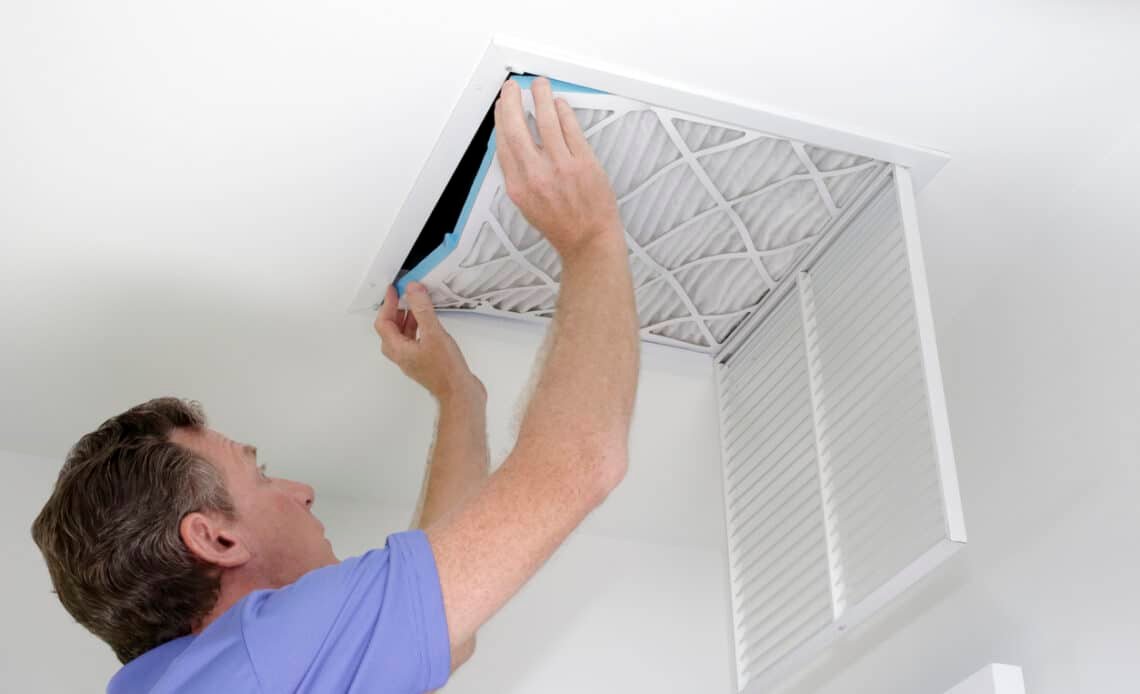Although air conditioners come in a variety of shapes and sizes, they all have one common function: to cool and dehumidify the air. This is accomplished by drawing in and cooling the air, then pushing it back into the room. To do this, the air conditioner relies on several components, including a filter. The filter’s job is to remove dust and other particles from the air before it’s released back into the room. However, when the filter isn’t changed regularly, it won’t be able to keep your air clean and could impact your HVAC system’s ability to function. If you’re not sure whether or not you need a new one, read on to find out how to tell if your air filter needs to be replaced.
How can you tell if your air filter needs to be replaced?

If the filter isn’t replaced regularly, it can become clogged with dust and other particles. When this happens, the air conditioner has to work harder to cool and dehumidify the air, which can lead to decreased performance and higher energy costs. In some cases, the filter can even become blocked to the point where the air conditioner can’t operate at all. Being able to tell when your air conditioner has a dirty air filter so you can change it is essential if you’re a homeowner. Fortunately, there are some signs you can keep an eye out for.
If you’re noticing higher utility bills, it might be time to change the air conditioner’s filter. A dirty filter can cause an increased load on the HVAC unit, leading to a higher utility bill than you might expect. Changing the filter can help the air conditioner run more efficiently, which will lead to more reasonable energy bills and a more comfortable home. A leak can also be a sign of a dirty filter, as it could be the result of restricted or clogged airflow. Other signs can include an unpleasant odor coming from the unit and a unit that isn’t blowing cooled air.
The best way to avoid issues is to keep up with regular filter changes and preventive maintenance. Experts recommend changing your filter at least once every three months, though many homeowners change their filter on a monthly basis to ensure peak performance. The unit itself should be inspected biannually. The average lifespan for an HVAC system is between ten to fifteen years, so you may want to consider a replacement if your system is over a decade old.
Why should you change a dirty filter right away?

The primary reason that your air filter should be changed regularly is because a dirty filter can impact your indoor air quality. It can lead to the accumulation of dust and other contaminants in the air, which can aggravate allergies and asthma. Breathing in dirty or polluted air over a long period of time can cause serious health problems. Polluted air contains harmful gases, particles, and chemicals that can damage your lungs and heart. It can also increase your risk for other health problems, such as respiratory illness, heart attacks, strokes, and even certain types of cancer.
The good news is that there are a number of things you can do to improve the indoor air quality in your home. The most important is to create a healthy home environment by ensuring that you have proper ventilation and by using natural cleaning and pest control products. You should also vacuum your home at least once per week using a vacuum that has a HEPA filter and launder items that can trap allergens more frequently. Placing air purifiers in high traffic rooms is another good way to reduce the presence of contaminants and allergens.
Though it may not seem like it, changing your HVAC system’s filter on a regular basis is crucial if you want to protect your safety and comfort at home. There are a wide range of problems that can arise, both with your HVAC and with your health, as a result of dirty air filters. Most notably, your indoor air quality can deteriorate to the point that it becomes a hazard to be exposed to on a daily basis. As long as you change your filters regularly and call a technician if you experience any unexpected issues with your HVAC unit, you shouldn’t have to worry about the negative effects of a dirty or clogged air filter.







